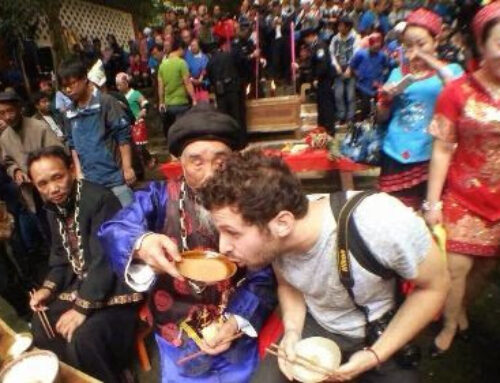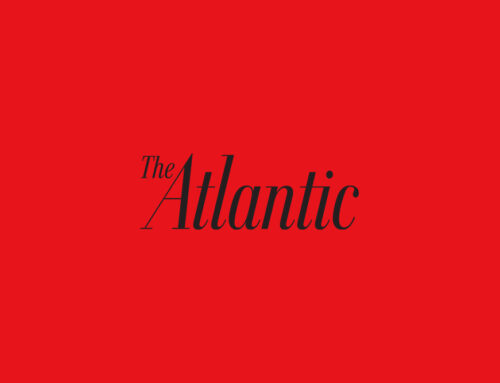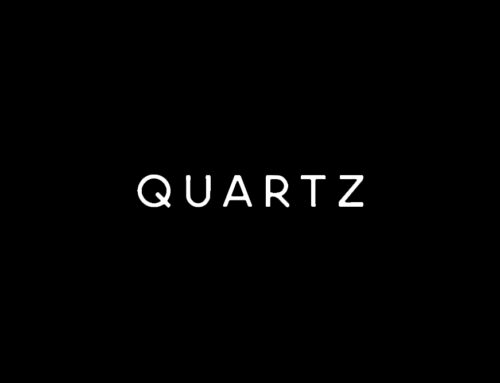LESSONS FROM THE NEAR FUTURE
Tibetan Math: Death, Living Buddhas, and Meditations on Materialism to Prepare for Your Post-Covid Re-emergence
Happy Saturday. As we prepare for re-emergence after prolonged shelter-at-home, we should remember that, in Covid times, much of our lives have been stripped away. Now you should be deliberate in what you choose to add back in.
A Primer in Tibetan Math
What do you get when you put five Tibetan 活佛, “living Buddhas”, two Chinese Communist Party officials, a few local guides, and a 25 year old American kid onto a bus for two weeks bumping around the oxygen-thin remote reaches of the Tibetan plateau?
Altitude sickness. Then, a lesson in what I call “Tibetan Math.”
Our crew was thrust together as speakers and performers on the main stage of a great big Tibetan festival. I was the bilingual event host, a D-list Ryan Seacrest type of gig I’d taken up to help fund book writing. The whole value prop was the novelty of a white dude bantering in Chinese. A somewhat dehumanizing gag in big cities actually felt like real cultural outreach on the Tibetan plateau. No one in the more remote areas we traveled to had encountered someone like me, much less gotten to speak in detail.
The living Buddhas – more or less high priests of Tibetan Buddhism – had never spoken to a foreigner, and I’d never spoken to living Buddhas. We had lots to discuss. We talked on the hours-long, jilting rides on dirt roads in between the outpost-like towns strewn across the barren plateau. Imagine a big wooden stage set up on a sprawling grassland rimmed with snow-peaked mountains. Sucking oxygen out of a canister moments before getting on stage, we spoke to crowds of hundreds of robed and jean’d Tibetans on plastic stools. Drones from the local TV stations whirred amongst the fluttering Tibetan prayer flags.
After the last performance, one of the living Buddhas took me aside and told me to get into a 4-wheeler. “We are taking you to a sky burial,” he said.
A sky burial is a sacred Tibetan ritual. When a person dies, their body is skinned and quartered and set on a platform in the mountains. Then, tens, sometimes hundreds, of vultures descend on the body and eat the corpse until it is picked entirely clean. Ours was a ten-body day, and watching the ceremony unfold, from preparing the body to the last vulture hopping off with its meal, took hours.
Throughout the sky burial, the small assembly of family, friends, and monks from the local monastery chanted while the vultures feasted.
What is Tibetan Math? One of the priests explained, as I’d write out in my journal, “Most of our lives are about addition: a new phone, new job, new apartment, new car.”
“Tibetan Buddhism is about subtraction—fewer possessions, fewer entanglements, fewer attachments.”
A sky burial is the final act of subtraction, as even the body – our last attachment to the physical world – is carried away so our soul can enter reincarnation.
Recently I was reminded via text by one of the five living Buddhas from many years ago:
“This virus has subtracted much from many of our lives. We should be careful about what choose to add back in. Treasure this opportunity.”

In China, as with here, some are meditating more deeply on materialism and whether the grind is worth it.
In a prior dispatch, I wrote how Covid has made many realize that life is fragile and tomorrow isn’t promised, encouraging people to live in the now. But a deeper appreciation of ‘the now’ has driven more than a consumer impulse. It’s also triggered a deeper meditation on, what do I want my ‘now’ to look like? What does ‘quality of life’ mean?
For years now in China I’ve been tracking the shifting sands of attitudes towards materialism.
When interviewing for the chapter on faith in Young China (which is now undergoing the censorship process in preparation for publishing in China) I went to 12 provinces throughout China asking, “Does China have faith?” The responses I got, in descending order of frequency, were:
- Money
- No
- Family
Before judging, remember how poor China was recently. Money means security, and, when just 30 years ago China’s per capita GDP was just north of $300, faith put in money was not misplaced. Money would bring your family education, security, mobility, exposure to the world, and an overall better quality of life.
Most who answered “money” said so with an embarrassed laugh, others with a tinge of resentment. In 1992 when Deng said “let some get rich first” igniting China’s race towards money, he implicitly understood that some would get rich last, or not at all.
Is materialism on the rapid decline in China? No.
But for some in China beyond the reaches of poverty, Covid-19 has accelerated the spread of the realization that money and success, past a certain point, do not guarantee happiness. (There’s a correlation between the two, but returns diminish after a threshold.) Quality of life has come to mean more than what brands you can afford and in which city you own an apartment.
How has this different appreciation for “quality of life” surfaced?
Over the last month or two as mobility has opened up again in China, we’ve observed that ‘living in the moment’ has meant a scaling away from the grinding, ceaseless striving of 1st tier city life. Many young people we’ve spoken with are questioning their 996 work schedule (9am to 9pm, 6 days a week—the Chinese startup unofficial schedule), their out-of-sync-with-wages housing prices, and too-far-to-see potential payouts of their career track.
One friend, Ou Yang, a 27-year old from Guizhou province living in Beijing, joined the growing ranks of fed up young people who’ve decided to move from a 1st to a 3rd tier city. He told me, “I’ll make less but live more. I live poorly squeezed into Beijing for the prospect of a better life. Ten years from now? Twenty? It’s not worth it. I’m ready to live now.”
So they’re leaving Beijing, Shanghai, Guangzhou, and Shenzhen, China’s four-headed 1st tier city monster. They’re going back to 2nd or 3rd tier cities with rents they can afford, knowing the trade-off is a pay cut and more limited job prospects. Covid-19 has nudged them to value their quality of life over the grind.
In preparing for re-integration ourselves, time to do a bit of Tibetan Math: what – and who – will you choose to add back into your post-covid life?
To bring the idea to life a bit, for me, I want to travel less and focus more. My pre-covid year was a 5-continent travel year, which began as a brag and ended as a cry for help. It’s hard to think clearly or deeply with that much movement. Relationships were all but impossible. Help has come in a mysterious way, and I’ll be doing my best to keep the covid-time clarity in a post-covid world.
Next week I’m leading a book club discussion for the London chapter of Young China Watchers on my book, Young China. Join us! Also, see past issues on Fear and Desire, Rebuilding Social Trust, and Travel.






Leave A Comment